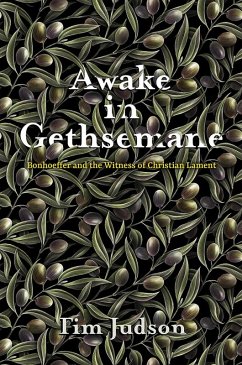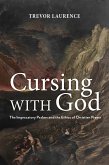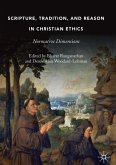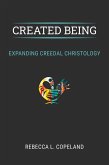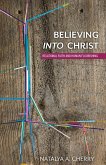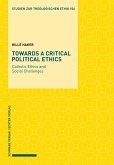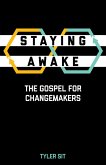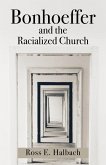Throughout the Psalms we witness David cry out for deliverance in seasons of anguish and grief, seeking refuge and strength from the Lord. Likewise, Jesus petitioned God in the garden of Gethsemane for strength in a time of dire need. The cries from both David and Jesus to God reflect the forgotten spiritual discipline of lament. Lament is not sorrow without ultimate hope-that is despair. Rather, lament is trust in God despite, and even by way of, the experience of hopelessness.
In Awake in Gethsemane Tim Judson envisions the place and meaning of lament for the Christian community through close engagement with the life and work of Dietrich Bonhoeffer. After documenting the historical decline and current lack of lament within much of the Western Church, Judson offers a threefold approach to the subject, arguing that a basis for lament is necessarily located in theology, ethics, and liturgy interdependently. This relationship frames the critical work carried out alongside Bonhoeffer, interpreting lament through his Christology, ecclesiology, and biblical exegesis. A constructive lamentology emerges, aimed to facilitate the church's engagement with some critical contemporary issues.
Judson presents lament as a faithful aspect of the truly human life which, in and through Christ, is for and with others. Lament is a means by which disciples stay "awake with Christ in Gethsemane" in a wounded world where sin, suffering, and sorrow abide. Such an outlook challenges prevalent ideological horizons and common presuppositions about lament which preclude or distort this crucial spiritual discipline. Hence, Judson opens new imaginative possibilities for construing lament positively and creatively, witnessing to the reality that faithful freedom is embodied perfectly by the lamenting Jesus himself, who, by way of his own lament, is the salvation of the world.
In Awake in Gethsemane Tim Judson envisions the place and meaning of lament for the Christian community through close engagement with the life and work of Dietrich Bonhoeffer. After documenting the historical decline and current lack of lament within much of the Western Church, Judson offers a threefold approach to the subject, arguing that a basis for lament is necessarily located in theology, ethics, and liturgy interdependently. This relationship frames the critical work carried out alongside Bonhoeffer, interpreting lament through his Christology, ecclesiology, and biblical exegesis. A constructive lamentology emerges, aimed to facilitate the church's engagement with some critical contemporary issues.
Judson presents lament as a faithful aspect of the truly human life which, in and through Christ, is for and with others. Lament is a means by which disciples stay "awake with Christ in Gethsemane" in a wounded world where sin, suffering, and sorrow abide. Such an outlook challenges prevalent ideological horizons and common presuppositions about lament which preclude or distort this crucial spiritual discipline. Hence, Judson opens new imaginative possibilities for construing lament positively and creatively, witnessing to the reality that faithful freedom is embodied perfectly by the lamenting Jesus himself, who, by way of his own lament, is the salvation of the world.
Dieser Download kann aus rechtlichen Gründen nur mit Rechnungsadresse in A, D ausgeliefert werden.

